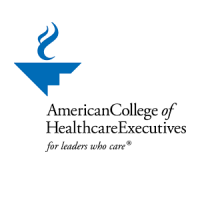Welcome
The Master of Science in Health Services Administration is appropriate for students preparing to become health service administrators or managers in hospitals, health maintenance organizations, medical group clinics, nursing homes, public health departments, state and federal health agencies, military health services, or other health service organizations.
Students who wish to design a specific, individualized master's degree related to health science should also consider the M.A. in Interdisciplinary Studies. Students can successfully combine courses from several relevant fields to build interdisciplinary programs serving their career goals in such areas as Community Health Education, Health Promotion, Environmental Health, Occupational Health/ Industrial Hygiene, Public Health, and Gerontology.
Students may also earn a certificate in Finance, Accounting, and Information Systems along with the Master of Science in Health Services Administration.
Interim Program Director: Dr. Nicole Henley
Email: nicole.henley@csusb.edu
Mission
The mission of the Health Services Administration Master's Program is to prepare a diverse group of graduate students to become skilled and ethical early to mid-career healthcare leaders in the Inland Empire, equipped with the knowledge, skills, and values necessary to excel in the dynamic field of healthcare management and administration while fostering diversity, equity, and inclusion.
Vision
California State University, San Bernardino, Master of Science in Health Service Administration program is a leader in preparing diverse graduates to serve as excellent managers that lead healthcare delivery programs. Through graduates of our program, we aspire to contribute to a healthcare system that is inclusive, responsive, and provides quality, equitable care to every individual, regardless of their background or circumstance.

Club
ACHE STUDENT CHAPTER - CSUSB
Membership in the CSUSB Student Chapter of the American College of Healthcare Executives (ACHE) is open to undergraduate and graduate students in health services administration. The purpose of the ACHE Student Chapter is to acquaint students with the foremost professional association in the field of health care management before they start their careers. The ACHE Student Chapter sponsors speakers on a variety of subjects, including career planning, federal and state health care legislation, women in health administration, and health care public policy issues.
ACHE is a national organization composed of over 30,000 health care executives. It offers continuing education classes and promotes standards for education for executives working in a variety of health care settings. The goals of ACHE are to promote professional development, formulate ethics standards, and serve as an effective network for health care executives.
For more information about the ACHE Student Chapter, contact Following :
Name: Dr. Paulchris Okpala and Dr. Nicole Henley
Phone No:(909) 537-5341, (909) 537 7228
Email: pokpala@csusb.edu, nicole.henley@csusb.edu
Visit the National ACHE website.
